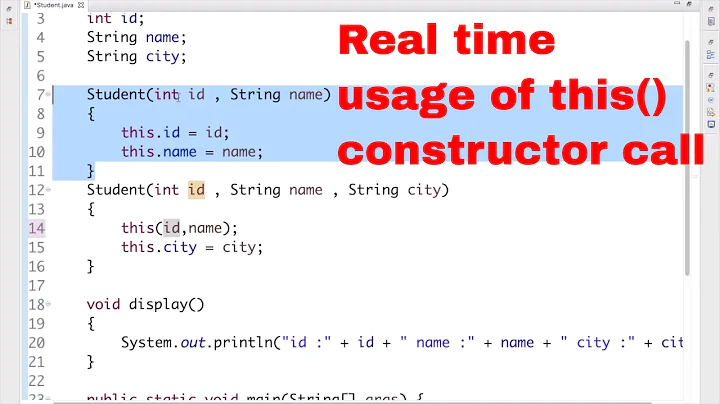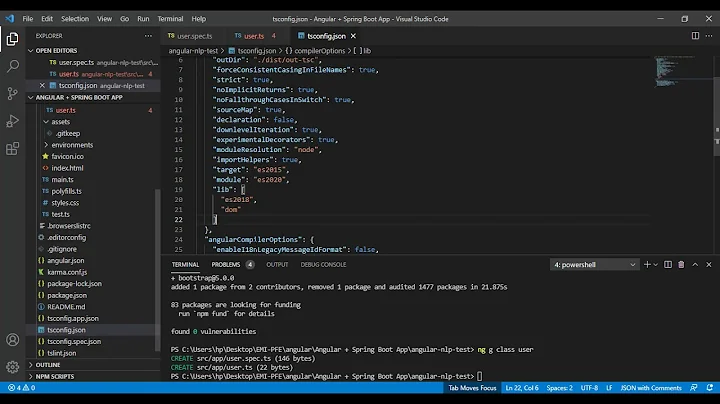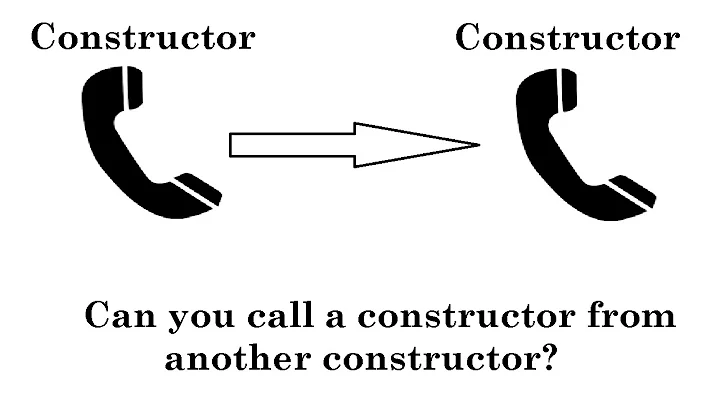no suitable constructor exists to convert from "test *" to "test", constructor,
Solution 1
I imagine you're coming from a Java/C# background. t is not a reference type here, it's a value type. new returns a pointer to an object. So you need any of the following:
test t = test("rrr", 8);
test t("rrr", 8);
test *t = new test("rrr", 8);
If you're not yet familiar with pointers, then definitely don't use the last one! But understanding the semantics of pointers is fairly critical; I recommend reading the relevant chapter(s) in your textbook...
Solution 2
So, whats the thing with classes having "*" in their name ( for instance, classes without .cpp file dont have asterix, all others do)???
You definitely need to learn about pointers. test * and test are two completely different types in C++. Here's two variables with those types:
test t;
test* p;
Here, t has type test, and p as type test*. We describe test* as "pointer to test".
You can often think of a pointer as being the memory address of an object. So in p, since it is a pointer, we could store the memory address of t, which is a test. To get the address of an object, we use the unary & operator, like so:
test t;
test* p = &t;
Note that t is a test object. You didn't need to say new test(). This is where C++ differs from other languages that you might have used, like C# and Java. In the above C++ code, t is a test object.
However, you can create objects with new test(), so what's the difference?
test t; creates a test object with automatic storage duration. This means it is destroyed at the end of its scope (often the function is being declared within).
new test() creates a test object with dynamic storage duration. This means you have to destroy the object manually, otherwise you'll have a memory leak. This expression returns a pointer and so you can initialise a pointer object with it:
test* p = new test();
So now let's look at your problem:
test t=new test("rrr",8);
We now know that new test("rrr", 8) returns a pointer to test (a test*). However, you're trying to assign it to a test object. You simply can't do this. One of them is an address and the other is a test. Hence the compiler says "no suitable constructor exists to convert from test * to test." Makes sense now, doesn't it?
Instead, you should prefer to use automatic storage duration. Only use new if you really really need to. So just do:
test t("rrr", 8);
Solution 3
test t=new test("rrr",8);
must be
// v
test* t=new test("rrr",8);
So, whats the thing with classes having "*" in their name
* is used to indicate a pointer, it's not in the name of the class. But it's a big topic, so you should do some reseach on this.
Solution 4
T* t = new T;
// ^^^
When new is used in this object construction, it denotes the creation of a pointer. What are doing is dynamically allocating memory which I'm sure you didn't mean to do. The Rather, typical stack allocated object construction is done simply like this:
T t;
Even if you had intended on creating a pointer and allocating the memory, you did it the wrong way. A pointer is created with the * symbol, which you lacked in your code. Secondly, when you're done using the memory you created, you must remember to delete/delete[] your code. delete[] is used on dynamically allocated arrays. So this is how it would look for your pointer:
delete t;
Solution 5
* is not part of the name, it's a modifier denoting, that the object is a pointer. A pointer is a variable holding address to some place in memory, where the actual object is stored. Some basics:
int i = 5;
int * pI = &i;
int * pI means, that you want to declare a pointer to place in memory, where an int is held. &i means, that you want to retrieve a pointer to variable. So now pI holds address in memory, where i is stored. Now you can dereference a pointer - get to value of the pointer:
int j = *pI;
Now you tell the compiler, that it should go to the address pointed to by pI and retreive its contents (since pI is a pointer to int, compiler will assume, that there's an int there).
Now, back to your example. new operator allocates memory dynamically for an object, so:
new test("rrr", 8);
results in allocating a memory for test class, calling its constructor with parameters "rrr" and 8 and returning a pointer to allocated memory. That's why you cannot assign it to test variable: new operator in this case returns a test *.
Try this code:
test * t = new test("rrr", 8);
Related videos on Youtube
klo
Updated on July 09, 2022Comments
-
klo almost 2 years
I'm new to
c++and I'm having difficulties with constructor and classes. So, here is my header file:#pragma once #include <string> using namespace std; class test { private: string name; int number; public: test(); test(string i,int b); };This is cpp file:
#include "test.h" #include <string> using namespace std; test::test(){} test::test(string i,int b){ this->name=i; this->number=b; }now, when I try to call
test t=new test("rrr",8);I get:
1 IntelliSense: no suitable constructor exists to convert from "test *" to "test"So, whats the thing with classes having
*in their name ( for instance, classes without .cpp file don't have asterix, all others do)? And what do I do wrong? -
Kiril Kirov about 11 yearsNice, your answer is much better than mine :) +1
-
klo about 11 yearstnx a lot. u guessed right, i did programming in java and c# so im i bit struggling with c++ :) ....
-
john about 11 years@klo If you try to program C++ like you programmed Java you will make loads of mistakes. They are not very similar at all.
-
 LuisDev99 over 4 years"I imagine you're coming from a Java" that hurted but thanks anyways lol, i was missing the * operator before my variable name
LuisDev99 over 4 years"I imagine you're coming from a Java" that hurted but thanks anyways lol, i was missing the * operator before my variable name




![[C++] - Bài 48: Constructors - Hàm tạo.](https://i.ytimg.com/vi/Zv77Uj2zXNE/hq720.jpg?sqp=-oaymwEcCNAFEJQDSFXyq4qpAw4IARUAAIhCGAFwAcABBg==&rs=AOn4CLDdjcTWfxh0bUjTFHFJihVndp_Trw)






